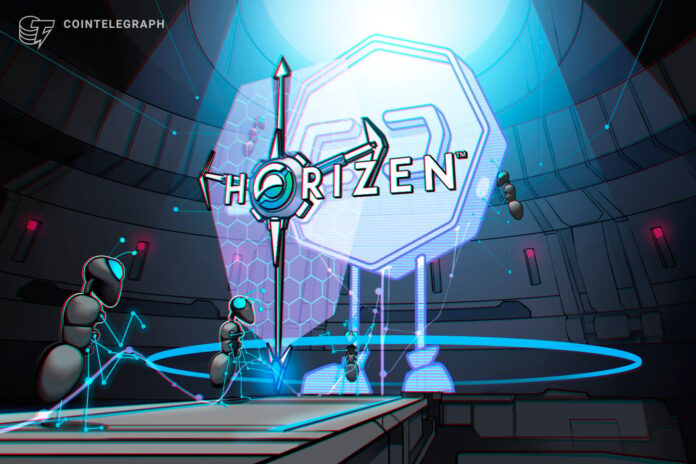Last year was a rollercoaster year for crypto. From the collapse of big wallet providers to the unfolding FTX saga and the all-too-familiar rug pulls, scams and bankruptcies. While the market is still trying to find its footing in the aftermath of what can be categorized as a challenging year, there is a case to be made for this being a net positive for an industry that is still going through substantial growing pains.
The scale of malpractice with FTX was so massive that it has drawn worldwide attention. This obviously has its downside for crypto projects, as critics will use what happened to paint the entire industry as untrustworthy and dangerous.
There is an upside, however.
This event may end up separating the wheat from the chaff in crypto, as projects will be put under more pressure to operate in a transparent and trustworthy manner. Scams and bad actors will have a much harder time, as both regulators and users will be on the lookout for platforms and projects that aren’t up to snuff.
The internal pressure for platform reform
Parallel to the external pressure put on projects, there will also be internal pressure for legitimate platforms to go above and beyond what is required of them to prove that they are in fact operating in the way that they should. This should result in more projects that provide users with real utility and cause a reshuffling of the layout of the crypto industry. There is no longer a place for platforms unwilling or unable to meet the demands placed on them.
The winners in this scenario are users who would enjoy a crypto industry more in line with the original philosophy behind the movement.
In order for this to happen, the industry will have to operate with much more transparency. There need to be mechanisms in place by which users and regulators are assured everything happening on a platform is above board.
Currently, there are a few different ways this vision can be achieved, but one of the most promising avenues to reform may be the proliferation of zero-knowledge solutions.
Horizen and zero-knowledge solutions
Zero-knowledge cryptography is technology that can be used in transactions and communications, assuring multiple parties that one party has an asset or information without revealing sensitive data about that asset or information.
While it is easy to prove that a party possesses certain assets or information by simply revealing them, zero-knowledge solutions aim to provide a full scope of information while protecting user data in that process. Instead of revealing the information, and thanks to complex verification algorithms, zero-knowledge solutions allow parties to verify data between each other without revealing sensitive information.
This technology is crucial for the ongoing development of decentralized financial platforms. By employing protocols that supersede human error and interest, decentralized platforms (and even centralized platforms that prioritize transparency) will be able to operate without making trust obligatory on the part of their users.
One of the projects working to bring more zero-knowledge solutions into play in cryptocurrency is Horizen, a blockchain platform that provides tools for developers to custom-build private or public blockchains. Horizen has worked with a number of projects, including Horizen Labs, to give them everything they need to create networks and platforms that are both transparent and protect the privacy of their users.
The path forward: Transparency and efficiency
Horizen has been rolling out zero-knowledge auditing for different blockchain platforms in the industry.
Through this solution, platforms can take intakes and outputs without revealing sensitive customer data. This kind of auditing can be crucial — particularly in conjunction with off-chain reserve and liability auditing — for exchanges and other major platforms that want to remove any potential doubts about the ways in which they operate.
This is also critical for increasing credibility in crypto and driving traditional Web2 company adoption of Web3 technology with more confidence. These companies must straddle the fence between preserving user privacy and adhering to the standards of transparency that we have come to expect from DeFi protocols.

Source: Horizen
Using zero-knowledge proofs, crypto exchanges can generate cryptographic proof of both their asset reserves and outstanding liabilities. Similarly, crypto lenders could show proof of funds being lent out to reputable counterparties. In both cases, the entities would never need to reveal to the public how much they hold in reserves or who their counterparties are.
What’s more, Horizen is actively working on launching an EVM-compatible sidechain called Horizen EON that will allow users to benefit from the increased efficiency of the EVM runtime environment and the additional transparency provided by decentralized protocols, as opposed to centralized players like FTX. Combined with its focus on transparency and user privacy, Horizen is working on bringing a new level of security to the space.
While user privacy is a hot-button issue, this kind of solution goes well beyond simple privacy measures, rather tackling the issues that have brought the crypto market to its current state. Currently, crypto is dealing with a trust issue. Faith in the major platforms is at rock bottom, and understandably so.
In order to forge a sustainable path forward, advancements like Horizen’s solutions are necessary, and the zero-knowledge approach will become invaluable.
Disclaimer. Cointelegraph does not endorse any content or product on this page. While we aim at providing you with all important information that we could obtain, readers should do their own research before taking any actions related to the company and carry full responsibility for their decisions, nor can this article be considered as investment advice.
Hits: 0












